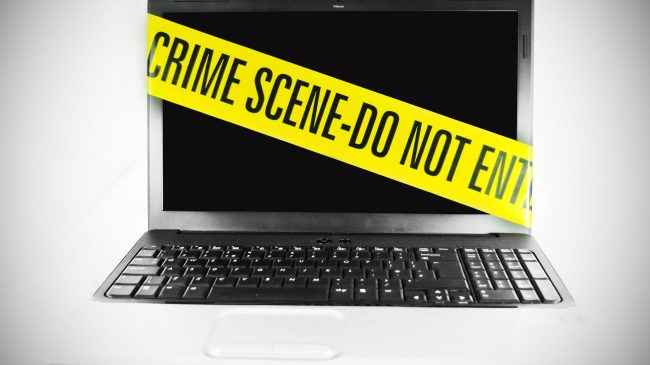No. 19-618
In The Supreme Court Of The United States
Jon Eric Shaffer, Petitioner,
v.
Commonwealth of Pennsylvania, Respondent.
On Petition for a Writ of Certiorari to the Supreme Court of Pennsylvania
Brief of the DKT Liberty Project, the Due Process Institute, and Reason Foundation As Amici Curiae in Support of Petitioner
Summary of Argument
Access to a digital device like a laptop, tablet, or smartphone, is rapidly becoming essential in today’s interconnected world. Digital devices have become ubiquitous. Americans use their devices, and the internet connectivity they provide, to carry out essential tasks in their day-to-day lives like communicating with loved ones, applying for jobs, accessing government services, finding housing, conducting banking and other financial transactions, and attending school. Even the most basic tasks can require—or at least can be made easier by—a digital device. And when those devices break or falter, Americans quite naturally turn to third- party repair services.
That is just what happened in this case. Petitioner Jon Shaffer sought out a repair for the laptop he owned for both business and personal use from CompuGig, a laptop repair store. That repair required replacement of the laptop’s hard drive and the manual copying of the laptop’s contents to the new hard drive. But after finding what he thought were illicit images on Petitioner’s hard drive, the repair technician called law enforcement, who seized the laptop and, under the so-called “private search” doctrine, conducted a warrantless search of Petitioner’s laptop for evidence of a crime.
The “private search” doctrine is a product of a different era. In 1981—the same year that the first “portable computer” was introduced—FedEx employees working at the airport in Minneapolis-St. Paul observed that a package had been damaged in transit. Upon opening the package and finding a white powder, the employees called the Drug Enforcement Agency (“DEA”), who came out, re-opened the package, conducted chemical field tests on the powder, and determined it was cocaine. In United States v. Jacobsen, 466 U.S. 109 (1984), this Court held that the agents’ actions did not violate the Fourth Amendment because “there was a virtual certainty that nothing else of significance was in the package” beyond the white powder, and because inspection of the package’s contents “would not tell [the agents] anything more than [they] already had been told.” Id. at 118-19.
The digital devices of today are nothing like the cardboard boxes of yesteryear. Yet the court below and courts across the country have applied the “private search” doctrine to digital devices as if they were the equivalent of cardboard boxes. Courts do this despite the fact that modern digital devices allow individuals to now carry on their person “the digital equivalent of [their] home.” United States v. Mitchell, 565 F.3d 1347, 1352 (11th Cir. 2009) (quotation marks omitted). A vast array of intimate details can be learned about a person from the information accessible on a digital device— personal communications, movements, health information, financial information, and other “privacies of life.” Riley, 573 U.S. at 403 (quotation marks omitted).
Accordingly, lower courts’ application of the private search doctrine to digital devices like Petitioner’s cannot be squared with the Fourth Amendment or this Court’s precedents. Unlike a DEA agent re-opening a cardboard box, a law enforcement officer confronted with a digital device that has been accessed by a third-party cannot possibly be certain of the device’s contents or that additional private information will not be disclosed. Nor can it seriously be maintained that a reasonable individual, by providing a laptop or other digital device to a third-party repair shop like CompuGig, thereby grants an implied license to the government to rifle through that device.
Without this Court’s intervention, the vast amount of information accessible on digital devices will remain subject to warrantless searches. Multiple courts have taken a broad view of the private search doctrine’s application to digital devices. Those courts have concluded that a private individual’s search of even a single file on a device—or an automated algorithm that flags certain documents to be provided to law enforcement—is sufficient to expose an entire digital device, with all of its contents, to a warrantless search.
This Court should grant the petition for a writ of certiorari to clarify the applicability — if any — of the “private search” doctrine to today’s digital world.
